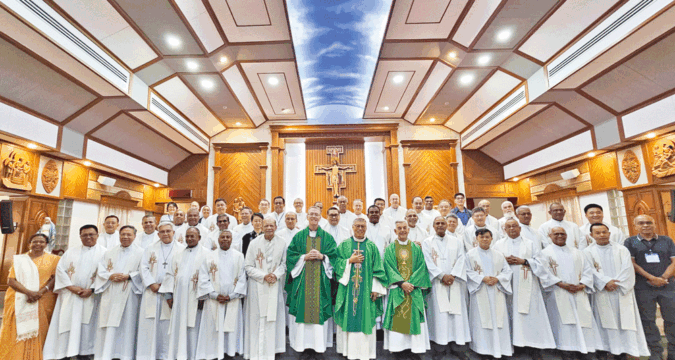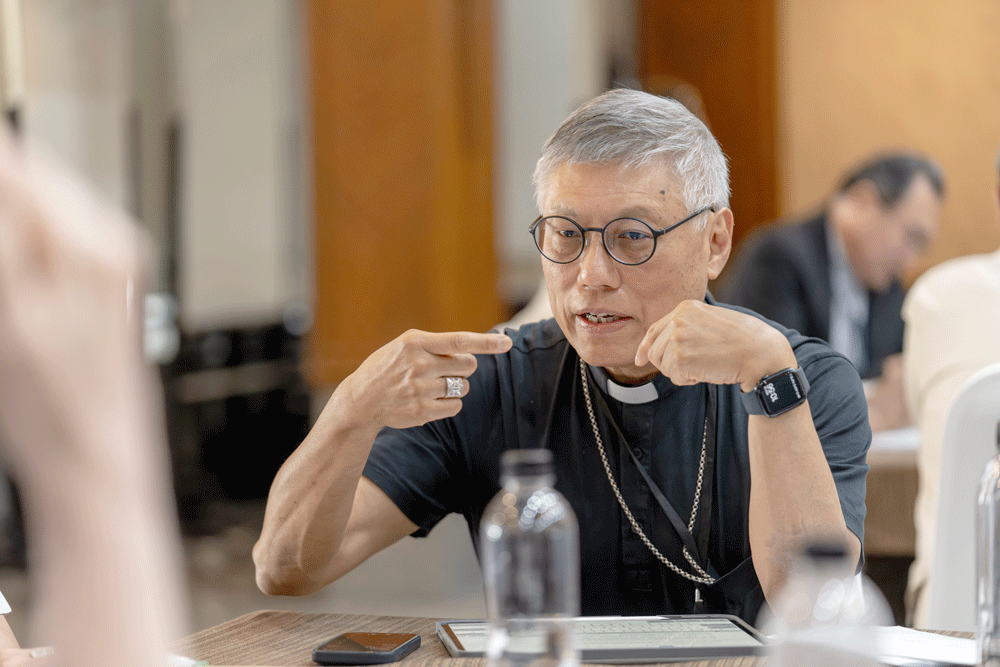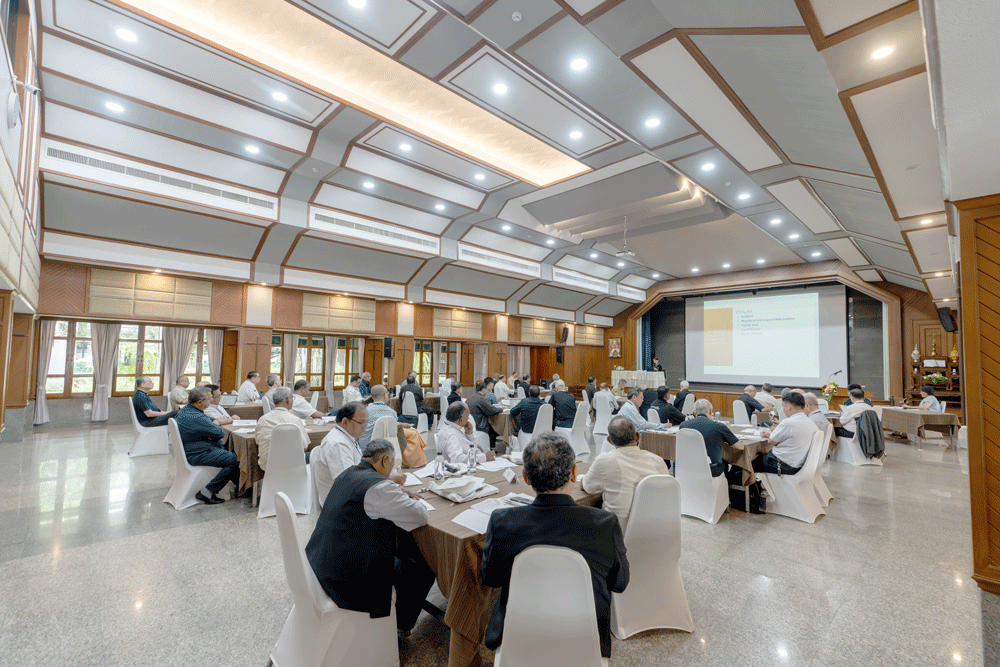
(SE): More than 50 bishops, Church leaders, and experts from across Asia gathered at the Baan Phu Waan Pastoral Training Centre in Sampran, Thailand, from September 22 to 26, for the weeklong FABC Bishops’ Seminar on Synodality.
The event was convened under the theme of fostering the “conversion of relations, processes, and bonds,” reflecting the Church’s growing commitment to live synodality in Asia more deeply.
The gathering brought together cardinals, bishops, clergy, religious, and lay leaders who have actively participated in the synodal journey initiated by Pope Francis. With the global Church now entering the implementation phase of the synod following the release of the Final Document in November 2024, the seminar sought to equip the Church in Asia with tools of discernment and collaboration to embody synodality at every level.
The seminar opened on September 22 with a Eucharistic celebration presided over by Filipe Neri Cardinal Ferraõ of India. The liturgy was followed by moments of fellowship and prayer, setting a tone of communion for the week.

On September 23, Archbishop Anthony Weradet Chaiseri, vice president of the Catholic Bishops’ Conference of Thailand, presided over Mass. In his homily, Archbishop Chaiseri underlined the purpose of the seminar: “The goal is to study and understand the Final Document of the Synod together, reflect on our dioceses, and consider how the Church in Asia can put it into practice,” he told LiCAS News.
The archbishop further noted that the gathering revisited the Bangkok Document, issued during the Federation of Asian Bishops’ Conferences [FABC] 50th anniversary in 2022, which he described as deeply intertwined with the global synodal process.
The goal is to study and understand the Final Document of the Synod together, reflect on our dioceses, and consider how the Church in Asia can put it into practice
Archbishop Anthony Weradet Chaiseri
Key sessions and discussions
The seminar combined lectures, prayerful reflection, and small-group sharing, modeled after the methodology of the Synod of Bishops in Rome.
Highlights included Pablo Virgilio Cardinal David of the Philippines reflecting on the links between the Synod’s Final Document and the Bangkok Document, while Professor Bong Baybado explored the reception of the synodal pathway across Asia. Archbishop Gilbert Garcera offered insights on leadership in a synodal Church.
According to Radio Veritas Asia, nine group discussions examined three central themes: the correlation between the Synod’s Final Document and the 2022 Bangkok Document, the reception of synodality across Asia, and the call for greater transparency and accountability in the life of the Church.
Archbishop Chaiseri emphasised that Asia’s contemplative approach to discernment, marked by silence, listening, and consensus, aligns closely with the global synodal practice of Conversation in the Spirit.

Cardinal Stephen Chow: Patience and trust in synodality
On September 24, Cardinal Stephen Chow, S.J., of Hong Kong presided over Mass and offered a homily that drew significant attention. As reported by RVA, the cardinal stressed that synodality is not a project with quick outcomes but a journey demanding humility, patience, and trust in God.
…nine group discussions examined three central themes: the correlation between the Synod’s Final Document and the 2022 Bangkok Document, the reception of synodality across Asia, and the call for greater transparency and accountability in the life of the Church
“Our emphasis on being ‘good Catholics’ has sometimes stopped us from asking questions,” he said, noting that many in today’s world look for rigid certainties. He reminded participants that discernment, however, is central to the synodal way.
Reflecting on Jesus’ command to his disciples to “go,” Cardinal Stephen underlined reliance on God’s providence over material securities. “We are loved, and this is the synodal experience too. Because of this love, we can also have hope,” he affirmed.
Cautioning against superficial change, the cardinal urged the Church to slow down and prioritise building authentic relationships. “It is not about accomplishment and moving on, but about staying and building relationships. Trust requires time and respect,” he said. He added that the call to a synodal Church must be rooted in solidarity with those who suffer, declaring: “A new way of being Church should affect the pain of those who suffer.”
Looking ahead to the 2026 FABC plenary assembly
The seminar also served as preparation for the upcoming FABC plenary assembly, set to take place in Bali in 2026. In his remarks, Archbishop Chaiseri highlighted that such meetings reflect the growing desire among Churches in Asia to embrace synodality more fully, deepen communion, and walk in unity with the universal Church under the guidance of Pope Leo XIV.
The implementation framework for synodality, introduced by Mario Cardinal Grech in March 2025, envisions a process running until 2028. It calls on bishops to set clear goals and ensure wide participation from all members of the Church—including youth, marginalised groups, and those sceptical of the synodal process.
It is not about accomplishment and moving on, but about staying and building relationships. Trust requires time and respect
Cardinal Stephen
Shared hope for the Asian Church
As participants gathered for group photos and moments of prayer, there was a clear sense of shared mission. The presence of diverse voices, ranging from senior cardinals to young lay leaders, underscored the seminar’s aim: to embody a Church that listens, discerns, and walks together.
RVA described the gathering as a tangible step in Asia’s synodal journey, one that reflects both the challenges and the hopes of the region’s Catholic communities.








